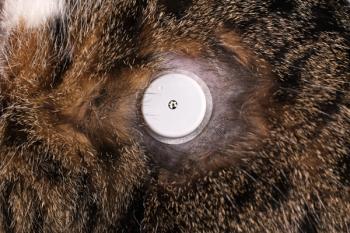
- Vetted November 2019
- Volume 114
- Issue 11
Studies initial results point to potential new atopic dermatitis therapies
VetCell Therapeutics researching stem cell treatment, while KindredBio studies efficacy of new monoclonal antibody for veterinary patients.
With the emergence of
A diagnostic biomarker and a stem cell treatment
As many veterinarians are all too aware, canine atopic dermatitis traditionally requires a lengthy diagnostic process based on exclusion and relying on patient history, clinical examination, allergy testing and diet trials. All of these tests, while reliable in their own right, have limitations, according to a release from VetCell Therapeutics.
The company, which manufactures cell therapies for veterinary applications, and a team from Western University of Health Sciences recently published
VetCell Therapeutics and Western University are also conducting
The end goal for all of this work is to create an FDA-approved stem cell therapy for canine atopic dermatitis, the release states. The company also wants to use the results of the canine study to pursue a human therapy based on the same principles under the guidance of VetCell Therapeutics' parent company, PrimeGen Global.
A new monoclonal antibody targeting canine itch
In related news, Kindred Biosciences recently announced positive results from its pilot study of KIND-016, a fully caninized, high-affinity monoclonal antibody targeting interleukin-31 (IL-31) for the treatment of atopic dermatitis in dogs.
The study was a randomized, blinded, placebo-controlled pilot field study of 62 client-owned dogs with atopic dermatitis designed to assess the effectiveness of KIND-016. A single dose of KIND-016 or placebo was administered on day 0, and the severity of pruritus (determined by the Pruritus Visual Analog Scale [PVAS]) and atopic dermatitis (determined by the Canine Atopic Dermatitis Extent and Severity Index-4 [CADESI]) were assessed at day zero and during weeks one, two, three, four, six and eight.
In addition, PVAS scores were assessed at four hours and on days one, two and three after administration of KIND-016 or placebo. Treatment success for individual dogs at each visit was defined as a reduction of 50% or greater from baseline in either the PVAS or CADESI score.
At week four, 61% of the KIND-016 group met treatment success criteria versus 33% of the placebo group. The reduction in itching, as measured by the PVAS score, peaked rapidly, with treatment showing significant efficacy as early as 24 hours with a trend as early as four hours. The CADESI response was also very rapid, with the treatment success rate reaching 70% as early as week one. While the study was not designed to demonstrate efficacy beyond week four, the majority of dogs that were treatment successes at week four maintained response through week eight.
KindredBio CEO Richard Chin says the company's biologics plant, located in Kansas, is designed to meet demand of more than a billion dollars of product per year and will soon be fully commissioned.
Articles in this issue
about 6 years ago
Should you rush to buy equipment before Dec. 31?about 6 years ago
Joint disease in cats: Assume the worst and treat for the bestabout 6 years ago
Journal Scan: Feline diabetes and the gut microbiomeabout 6 years ago
Advice for veterinarians: Surgical trauma and the second victimabout 6 years ago
Why the 'dental' divides our professionover 6 years ago
How a new rule could force changes to your veterinary facilityNewsletter
From exam room tips to practice management insights, get trusted veterinary news delivered straight to your inbox—subscribe to dvm360.




